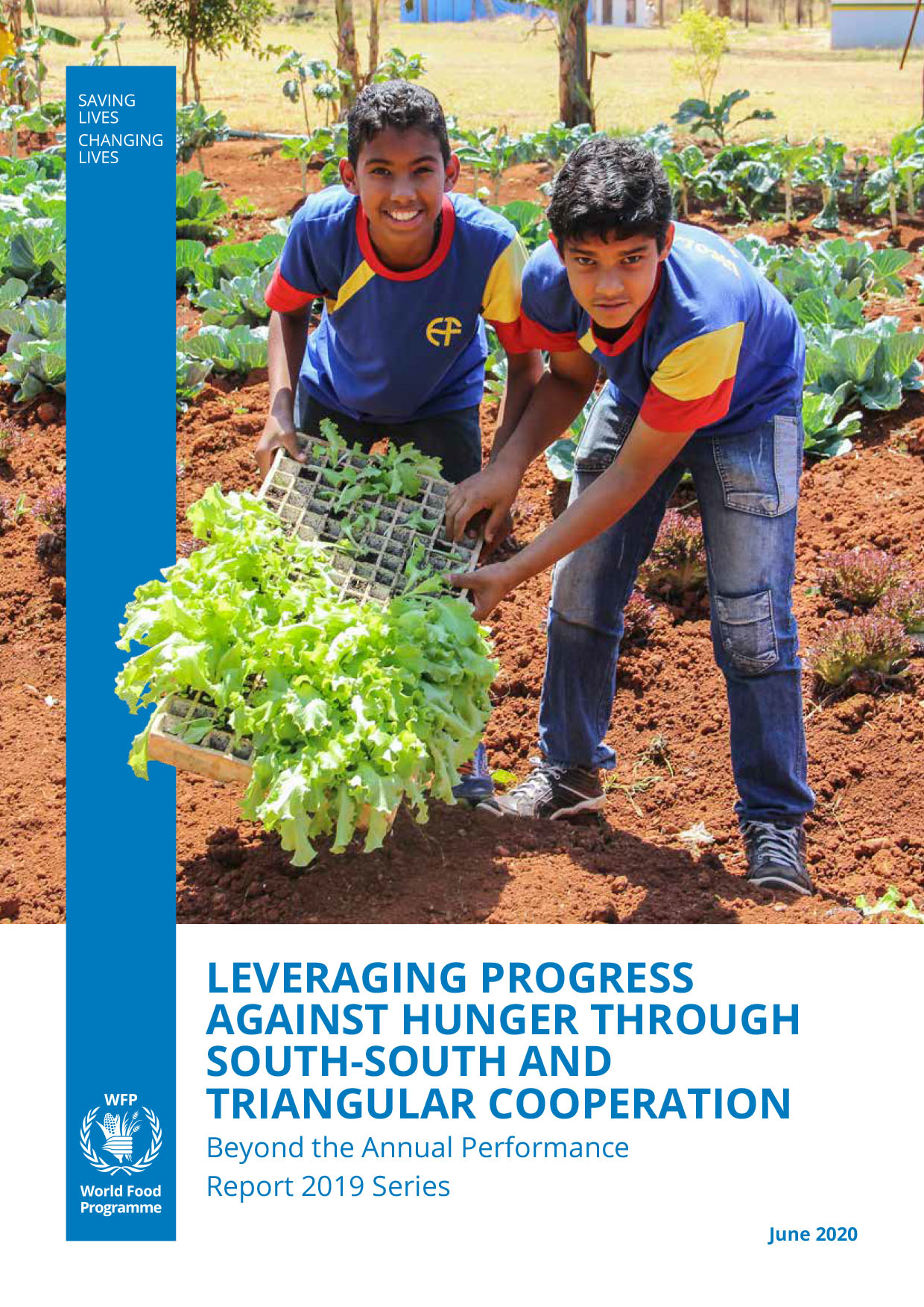South-South Cooperation (SSC) involves two or more developing countries exchanging knowledge, expertise and technical and financial resources in pursuit of their own or mutual development objectives. Over the past decades, the approach gained recognition as an effective framework for collaboration between developing countries to achieve the SDGs.
In response to the rising requests of governments, WFP is playing a facilitating or “triangular” role by brokering South-South partnerships which focus on achieving SDG 2. The approach recognizes the valuable knowledge and experiences of developing countries and aims to bring more countries on board as partners.
Since 2011, WFP established three Centres of Excellence (CoEs) in Brazil, China and Cote D’Ivoire; adopted the South-South and Triangular Cooperation (SSTC) Policy in 2015; and expanded partnerships with key actors including the Rome-Based agencies. Linked to WFP's growing engagement in SSTC, country offices are provided with tools and guidance to develop South-South country activities to strengthen areas such as social protection, resilience-building, early warning analysis and nutrition.

